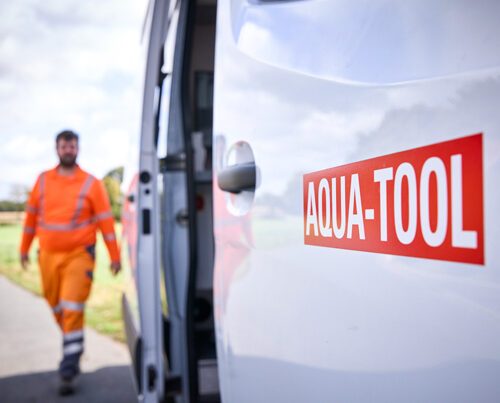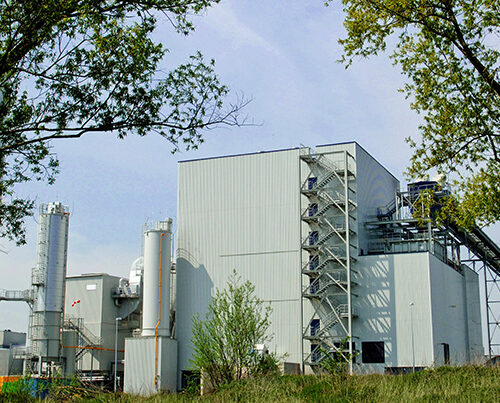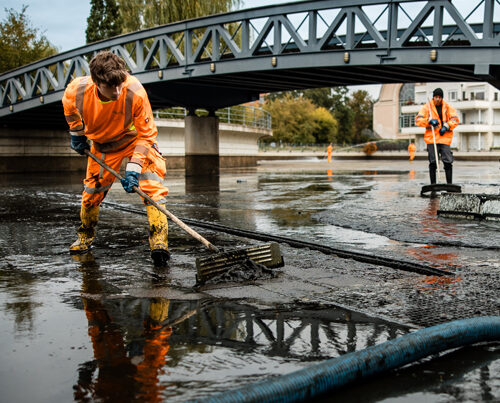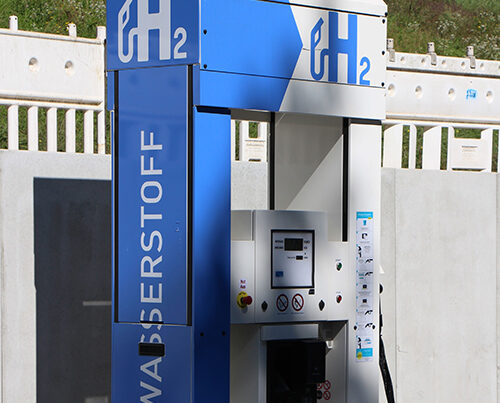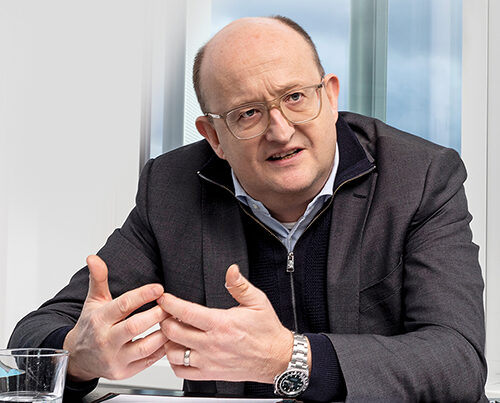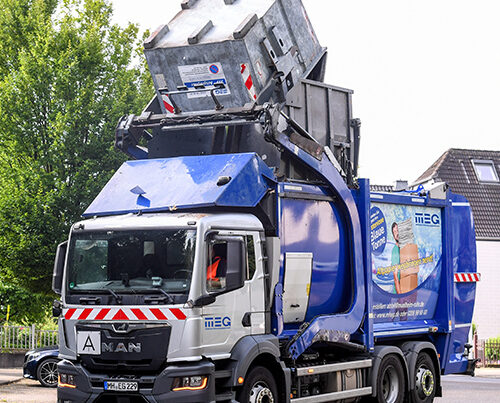A whole number of towns across Germany have already taken steps to transition towards becoming a zero waste city – i.e. a city that implements climate and decarbonisation plans to reduce its volumes of waste and greenhouse gas emissions in line with the EU’s Circular Economy Action Plan. Frankfurt am Main joined this list of cities in November 2022 when its Zero Waste Lab got together for its inaugural meeting. This broad-based committee includes a variety of participants and has been set up to act as a think tank to help Frankfurt become a zero waste city. FES Frankfurter Entsorgungs- und Service GmbH, a regional market player, was among those around the table, as were seven other institutions. Six months on, the first ideas have been submitted by Frankfurt’s local residents. The task now: to further develop waste prevention programmes that have already been implemented, such as #MainBecher and reYOUrS, as well as to get new ideas up and running.
Halving volumes of residual waste in 12 years
The City of Frankfurt has set itself some ambitious goals. These are certainly attainable, though, looking at the broad alliance of institutions taking part in Frankfurt’s Zero Waste Lab. Besides FES Frankfurter Entsorgungs- und Service GmbH and the City of Frankfurt, these include the Frankfurt Rhine-Main Chamber of Industry and Commerce, Frankfurt University of Applied Sciences, the Polytechnic Foundation of Frankfurt am Main, the ISOE (Institute for Social-Ecological Research), the Frankfurt Food Council, GWR gemeinnützige Gesellschaft für Wiederverwendung und Recycling mbH, Goethe University Frankfurt and other members of the city’s zero waste scene. All of them are institutions with extensive networks, contacts and funding potential.
“We want to become a zero waste city,” commented Rosemarie Heilig, Frankfurt’s councillor for the climate and environment, naming a number of specific targets. “Annual per-capita volumes of residual waste must have been reduced from the current 205 kilos to 120 kilos by 2035. What’s more, we are looking to reduce the total volume of municipal waste per person per year by two percent each year.” Having said that, though, it is a long path that the zero waste cities will have to take to halve their volumes of waste. More than 40 million tonnes of household waste are generated across Germany every year. If all this waste were loaded onto refuse collection trucks, this would create a convoy of lorries that would completely encircle our planet.
“We want to put our heads together to discover where there is potential to be creative, to come up with ideas, to evaluate them and then kick-start campaigns and projects to help Frankfurt achieve its goal.”
Benjamin Scheffler, Managing Director of FES Frankfurter Entsorgungs- und Service GmbH
What is Zero Waste?
Zero waste focuses on conserving all resources by means of:
- responsible production
- responsible consumption
- reuse & recovery of products and raw materials
This should be achieved without using incineration or any other treatment methods that may release pollutants. Neither the environment (land, water, air) nor human health should be threatened.
Zero waste am Main
Halving the volumes of municipal waste within twelve years is going to be a mammoth task and will require some good ideas and concepts. “We want to put our heads together to discover where there is potential to be creative, to come up with ideas, to evaluate them and then kick-start campaigns and projects to help Frankfurt achieve its goal,” explained Benjamin Scheffler, managing director of FES Frankfurter Entsorgungs- und Service GmbH, which has taken over a coordinating role at the Zero Waste Lab. And there’s a good reason why FES was given this leading role. This waste management firm has extensive references and in-depth expertise when it comes to implementing practical ways to avoid waste. “We have a successful track record of getting major projects up and running, such as Frankfurt’s #MainBecher cup return scheme and reYOUrS, a scheme that accepts and resells electrical appliances that can still be used.”
What’s more, FES has a network of more than 400 volunteer litter angels. These ‘angels’ are Frankfurt residents who volunteer to look after a specific stretch of road or green area and keep it clean. The company provides the volunteers with litter bags, litter picks and gloves and is there to provide advice when needed. “Our litter angels also act as multipliers, helping to spread the zero waste mindset throughout their community,” commented Flora Matani, a project manager and coordinator at the Zero Waste Lab. “We’re already making the most of these ties to the local community.” The Zero Waste Lab is now looking at using the networks of old and new partner institutions to grow these ties with Frankfurt’s residents.
zerowaste-lab.de
FES has considered itself to be a pioneer when it comes to sustainability, environmental education, return schemes and waste segregation in its region for many years now. The new zerowaste-lab.de website went live in October. “We are using this new website to call on people to volunteer and take part in existing and/or new projects as well as to submit their own project ideas,” Flora Matani continued. They want to be the ‘go-to place’ for everyone interested in this issue and to actively encourage people to take up voluntary work.

Carbon footprint: a tool for measuring a business’s impact on climate change
A growing number of companies have set themselves net zero targets. One internationally recognised means of measuring a company’s greenhouse gas emissions is the corporate carbon footprint (CCF), a system set up to reflect the Greenhouse Gas (GHG) Protocol. The carbon footprint is then used as the basis for developing a climate action plan as it shows how many GHG emissions a company produces across its different business activities. The company can then use this information to set concrete carbon reduction goals as it heads towards becoming net zero. By providing a comprehensive overview of a firm’s emissions, the carbon footprint is a key tool for demonstrating how a business helps curb climate change.
Good feedback: great ideas, first successes
A whole number of ideas and suggestions have been submitted to the Zero Waste Lab since October. “These range from highly technical ideas such as filtering out metals at heat and power stations, to using coffee grounds and introducing a waste collection app, all the way through to promoting reusable nappies. All of the submitted ideas are examined by Zero Waste Lab’s board of experts and a voting process is used to select which projects can and should be implemented. A kick-off meeting is then held to determine which people and institutions should take part and what method of approach should be applied,” Matani explained. The first projects that the Zero Waste Lab has been working on include an exhibition focusing on reuse and repair and a fun digital offering inviting people to help keep the city clean using an app. “The exhibition will be held in one of Frankfurt’s second-hand shops. People living in the city should be made more aware of the fact that goods can be repaired,” Matani concluded.
And FES, a public private partnership between the City of Frankfurt and the recycling firm REMONDIS, has even gone a step further. At the end of 2022, it had its carbon footprint verified in order to contribute towards the City of Frankfurt’s goal of being net zero by 2035. One initial conclusion: “This verification process has shown that we’re already offsetting some of the emissions produced from incinerating municipal and commercial waste by generating energy from biogenic materials and operating climate-friendly vehicles,” said FES managing director Dirk Remmert. “That means some parts of our business are already well set up.”

FES analyses its own emissions
The verification process used to calculate a carbon footprint is complex and data must first be carefully gathered before the process can begin. “We worked together with the experts from the verification body and took a close look at our emissions across all of our business activities,” remarked project manager Svenja Hoffmann. “These included our waste-to-energy plant, our organic composting plant, our fleet of vehicles and the management of our real estate.” To be able to provide a standardised framework for measuring emissions, the Greenhouse Gas Protocol differentiates between direct and indirect emissions. The calculation process is divided up into three categories. “As expected, it is our waste-to-energy (WtE) plant – which we operate together with the energy provider Mainova – that generates by far the most direct emissions,” Hoffmann reported. “Having said that, though, it also is a key lever for growing climate neutrality. We generate electricity and heat at our WtE plant and have been using some of this electricity to charge electric buses. This year, we also began charging our fully electric refuse collection trucks there.” This is where the City of Frankfurt’s zero waste concept turns full circle: “Looking ahead, the WtE plant’s carbon emissions will drop as the amount of residual waste produced in Frankfurt falls dramatically in line with our goals to become a zero waste city,” said Hoffmann summing up the situation. The next steps for FES’ carbon footprint are already within sight: “Scope 1 and 2 have been wrapped up. We now need to focus on scope 3, which means measuring the GHG emissions of our procurement processes, business trips and the waste produced by our own business so that we can add this to our carbon footprint documentation.”
As a joint initiator of the zero waste concept and one of the first businesses to calculate its own carbon footprint, FES is spearheading this movement across the country. The company is demonstrating the huge potential that waste management firms have to help establish a circular economy and actively drive forward efforts to protect the environment and curb climate change.
Zero Waste cities: reshaping humans’ relationship with waste
Zero Waste Cities is a programme set up by Zero Waste Europe, an association that Zero Waste Germany is also part of. Zero Waste Germany represents and unites German cities and local authorities that have publicly declared their intention to continuously reduce their volumes of waste and integrate the zero waste philosophy into their local waste management economy. These objectives should reshape the relationship humans have with waste. The goal of the programme is to help local councils to transition towards zero waste with ideas and civic engagement as well as to recognise their efforts. The programme is targeted at towns and cities of all sizes and covers all sectors of a city, including the city government, waste management, education, events, economy and local action groups.
The Greenhouse Gas Protocol
The Greenhouse Gas Protocol (aka GHG Protocol) provides a tool that enables businesses, institutions and even towns and countries to measure and manage their greenhouse gas emissions. This tool measures emissions generated along the whole of a product’s life cycle as well as throughout the whole of a business activity – and includes both direct and indirect emissions. The Greenhouse Gas Protocol has developed various standards to create a common approach for calculating emissions.
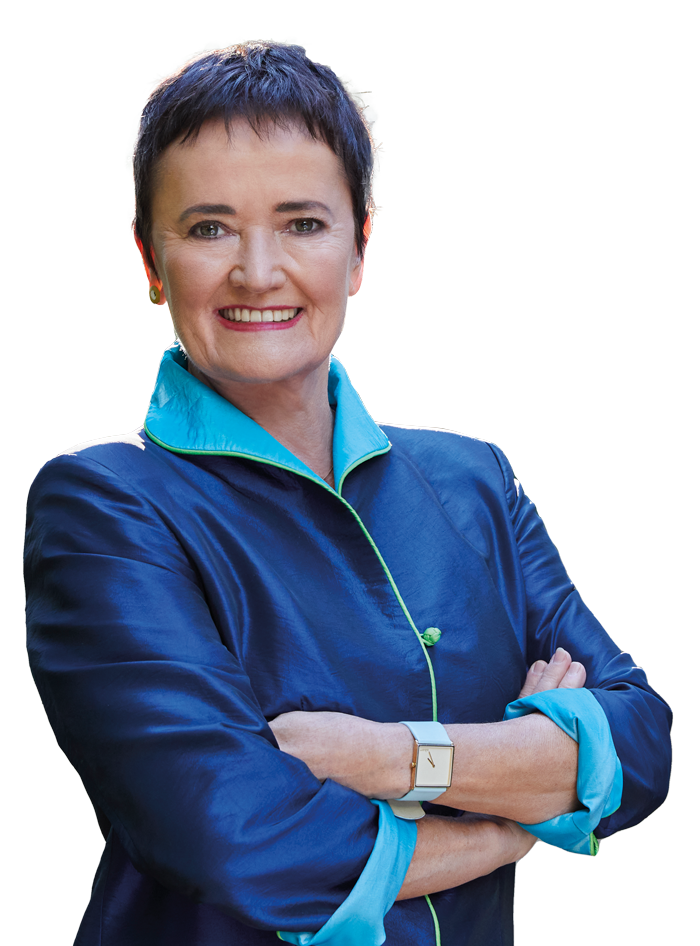
“We need to make it clear that waste is a valuable resource.”
An interview with Frankfurt’s councillor for the climate and environment Rosemarie Heilig
RE:VIEWS: Why is it important that Frankfurt has set off along this path to becoming a zero waste city?
Rosemarie Heilig: The way we currently handle our refuse is simply a huge waste of resources. Waste is not being separated properly at the moment. Around 100,000 tonnes of recyclable materials end up in our residual waste bins every year and so end up being incinerated. That’s equivalent to the weight of ten Eiffel Towers – every year, just in Frankfurt. If we want to have a genuine circular economy, then huge efforts are going to have to be made in a whole number of areas. That’s why we began the process, “On the way to becoming a zero waste city”.
RE:VIEWS: So what set this all in motion?
Rosemarie Heilig: We analysed Frankfurt’s waste statistics and took a look at the composition of Frankfurt’s waste by examining its residual waste. We came to a number of conclusions – including those mentioned above – and realised that not doing anything was simply not an option.
RE:VIEWS: How did you manage to get such a wide range of supporters to back the project?
Rosemarie Heilig: Frankfurt has been very lucky, thank goodness. A large number of initiatives and socially-engaged individuals have been promoting waste prevention and sustainability across the city for a long while now. Many of them have participated in the European Week for Waste Reduction, which is coordinated by FES GmbH. Our environment agency has also supported the ‘Aktion Biotonne Deutschland’ or ‘German organic waste bin’ campaign for several years now. We have a wide network of second-hand shops, unpacked stores, repair café initiatives and people blogging about cutting down on plastic or on zero waste – all of which we can use. The whole project is, of course, held together and sustained by FES’ waste management specialists, our environment agency and the Gesellschaft für Wiederverwendung und Recycling, which recycles electrical appliances and runs the Neufundland store.
RE:VIEWS: What recommendations would you make for other towns that wish to transition towards becoming a zero waste city?
Rosemarie Heilig: What’s key is to take a detailed look at the town’s current situation: Where are we at? What do we already have? What can we build on? Once you have that, you can then define your goals. If a town wishes to be officially certified by Zero Waste Europe – as we are currently doing – then I would recommend that it contacts them early on. The criteria for the certification process can then be integrated into the town’s zero waste concept in good time.
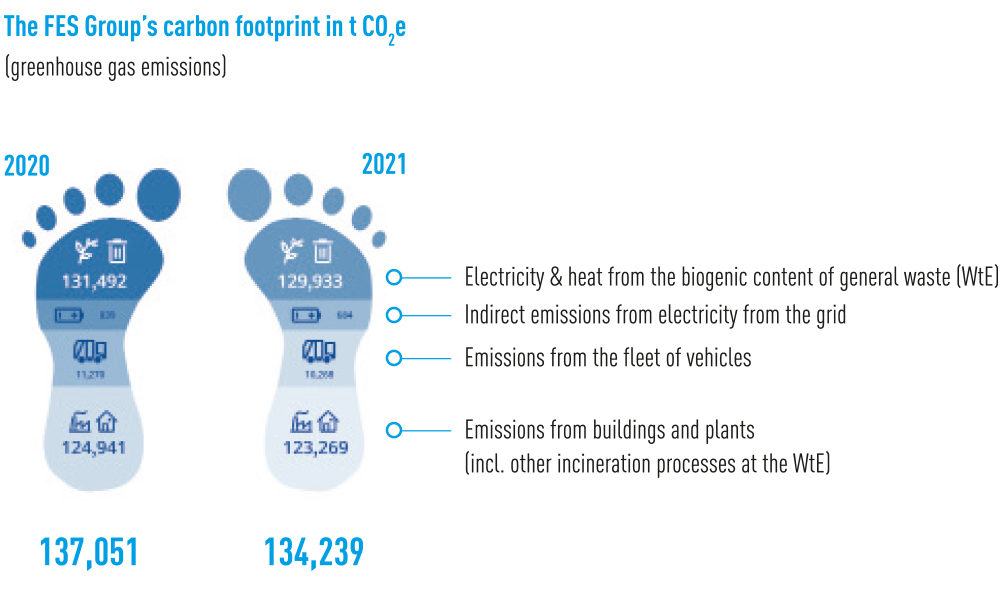
RE:VIEWS: What do you think will be the biggest hurdles and problems?
Rosemarie Heilig: One of the most difficult tasks will certainly be to make it clear to the city’s residents that it does matter how they handle their waste. Many simply don’t think about this at all. We need to raise awareness and make it clear that waste is a valuable resource.
RE:VIEWS: How do you personally avoid generating waste?
Rosemarie Heilig: I prefer to go shopping at local markets and always have my shopping basket with me. I also avoid buying products that are packed in plastic. I buy pasta, rice and flour from the unpacked stores. That way I have far less waste packaging.
RE:VIEWS: Ms Heilig, many thanks for taking the time to speak to us.
Image credits: images 1 – 4: Adobe Stock: Ira; image 5: Katharina Dubno






